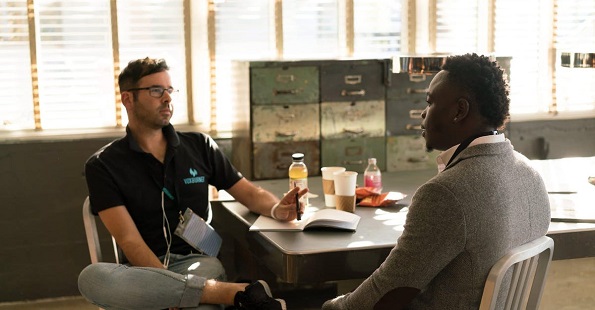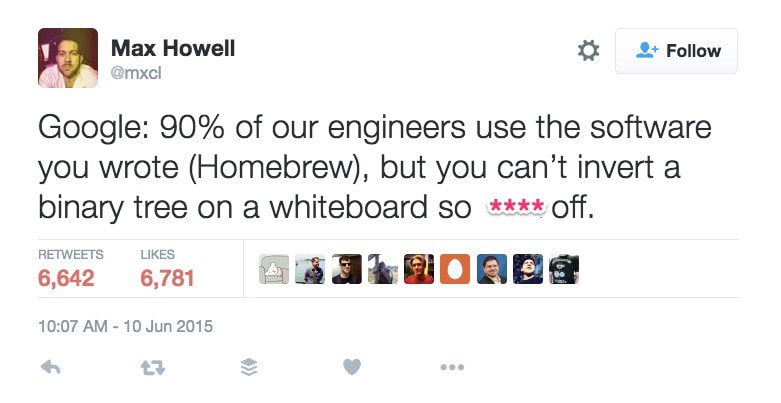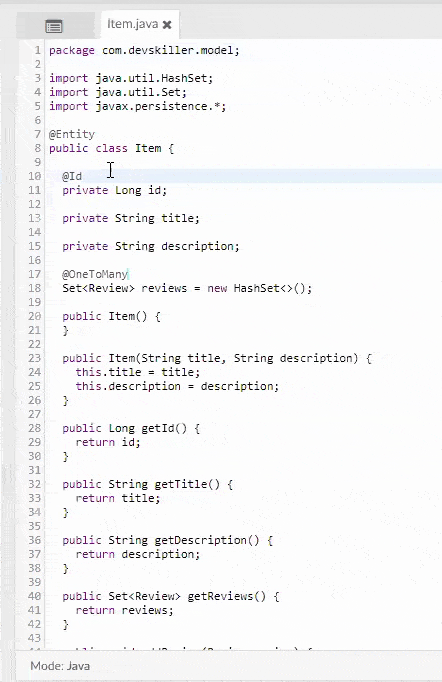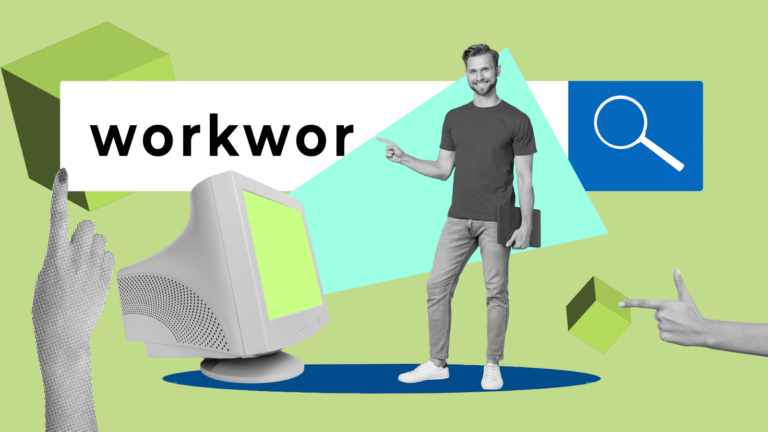
Second Interview Questions

There are several stages to any . The screening stage, the first stage and then usually there comes the .
O is used to either assess how well a potential employee will fit in with the e during a competências transversais r to verify technical skills through a technical . The choice of the you ask, dictates which of these two purposes you want the to serve.
What is the difference between the first and second interview questions?
For a , when it comes to it’s important that the first and be viewed in different ways.
The first allows recruiters and to learn about personality and assess the basic skills of the . The compares you to other candidates. This means that are more detailed. They are often asked to inquire about specific skills, attitudes or personality traits. They are often in nature, or they enquire about specific events or experiences.
In some companies, the follow-up is typically conducted by the same who conducted the . In others, and this is a more favorable scenario, it’s conducted by a new face. This allows candidates to meet more members of the and to get a better idea of the company during the . Multiple touchpoints are beneficial to the company too as they reduce the impact of unconscious bias.
 De acordo com Joel Spolsky,
De acordo com Joel Spolsky,
“You should always try to have at least six people interview each candidate that gets hired, including at least five who would be peers of that candidate (that is, other programmers, not managers). You know the kind of company that just has some salty old manager interview each candidate, and that decision is the only one that matters? These companies don’t have very good people working there. It’s too easy to fake out one interview, especially when a non-programmer interviews a programmer.”
Joel has a point: you should always make sure your candidate meets numerous people from your company. Hiring on consensus decreases the risk of making a bad hiring decision and it cannot be achieved without multiple touchpoints.
Killer Second Interview Questions
Let’s first look at you can ask your candidates. These interviews give recruiters and a chance to take a closer look at the . They can also compare them with other candidates.
Of course, the selection of varies depending on the questions you’ve already asked during the and the first . In the competências transversais , candidates are more ready to discuss the specifics of their employment history, especially the most recent positions. They are also typically ready to more detailed questions about how they behaved or performed in a given situation.
Here’s a list of you can use in your (soft skills) :
1. What are your career goals?
You’ve probably asked the candidate why they are interested in this particular position. Talking to them about their career development plans can give you a lot of insights into who they want to become in the long run. It also shows you whether they have a clear goal in mind or are still unsure of what they want to do in the future.
2. Was there a time in your career when a project was changed? How did you adapt?
This question allows you to assess how people react to change and how attached they are to the original idea. Some people thrive on ambiguity, others need a well-formulated plan they need to stick to. Look at which of these scenarios is more likely to happen in your organization and assess potential fit.
In development, “a good enough solution” is often selected due to lack of time and resources. Hiring someone who can’t see past the ideal scenario has its benefits and challenges. On the other hand, “duct tape and WD-40” programmers also come with their own advantages and disadvantages. I advise you to evaluate which of them is more likely to succeed in your organization.
3. What are the main attributes needed to be successful in this role?
You can expect your candidate to bring up some of the skills listed in the job description and tell you how they demonstrate this particular quality in person.
4. How have you resolved a conflict with a colleague or superior?
How does your candidate react to negative situations? Are they able to rise above the conflict and look for solutions or do they hold a grudge?
5. Could you tell me a little more about your current or most recent job?
Learning about your candidates’ past experience from a is valuable for a number of reasons. On the one hand, you learn about their previous duties and challenges. On the other, you get to see how they talk about their current or former employee, their managers, and colleagues.
6. What challenges are you currently looking for?
The person might have the right skills, but are their interests in agreement with what they would be doing every day? Does your open position provide what they’re after?
7. Have you ever been assigned to more than one project? How did that affect your work?
Multitasking in the workplace can be tough. Is working on more than one project a common situation for your employees? Some developers work best when assigned to a single project, others find it easy to switch between multiple projects without getting distracted.
8. What role do you typically take on a team?
This question allows you to look at the candidate from the perspective of assessing team fit rather than company fit. This is especially valuable for hiring managers and tech leads who are typically more familiar with the developers working on their dev teams and their working styles. Asking this question can help you avoid hiring too many people who take the same role on the team.
9. What would you change about the company?
Asking a about their is a decisive tactic. The way the answers these questions can tell you a lot about their research skills and how engaged they are in joining your company. Can they offer more information than was given in the ? As a , you can at least expect them to come up with some answers regarding your website.
This is one of the most common questions asked of candidates applying for design or tech roles.
You can also ask this in relation to their previous jobs to see if your candidates have an understanding of the company’s objectives.
10. Can you tell me about a time when you worked successfully as part of a team?
Team collaboration is a highly sought-after . While many developers spend a lot of time working on their own, they must also be able to work as a part of a team.
Speaking of teams, candidates often get a tour of the office in the . They get to meet and greet some employees and have a look around the office of their . This way, you can see how the candidates fit in culturally.
11. What salary are you seeking?
Although salary expectations are sometimes briefly covered in the , many companies talk about money in more detail in the . Before making a , it’s important to discuss expected salary with the . I strongly recommend consulting PayScale , Glassdoor or the Bureau of Labor Statistics in order to learn current salary levels. Remember that your candidates will factor their previous experiences into the salary expectation levels they provide you with. Think about possible scenarios and be prepared to their questions.
12. What is your notice period?
This kind of interview question serves a pretty straightforward function as it tells you when the person can start work in your company. However, it also gives you a chance to catch any suspicious behavior. Example? ‘I don’t think need to give anyone any notice, I just won’t go back in’.
Second interview questions to ask in the technical interview
Technical interviews are conducted by technical professionals like members of your developer team, tech leads, or the CTO. Candidates are often asked role-specific questions or code together.
The technical interview the interviewer aims to:
- evaluate problem-solving skills
- talk and code together to assess team and company fit
- focus on tasks specific to your company, for instance, the ones your dev team is currently working on
Sadly, the technical interviews spark a lot of controversies mostly because of the much-hated whiteboard testing where developers are asked to invert binary trees on a whiteboard or solve logical puzzles. To quote Quincy Larson,
“Unfortunately, interviewing practices at big tech companies aren’t that scientific. The decision of whether to hire a developer usually comes down to the candidate walking up to a whiteboard and regurgitating algorithms that haven’t changed since the 1970s, like a (classically) trained monkey.”
Reactions?
 At DevSkiller, we strongly believe that it’s impossible to assess technical skills with a set of yes/no questions or algorithmic puzzles. You won’t find them here in this post. Instead, let me point you to our catálogo de testes de codificação where you can find a wide range of tests with programming tasks which can be used to verify coding skills at the screening stage or in pair programming. Here’s what it looks like:
At DevSkiller, we strongly believe that it’s impossible to assess technical skills with a set of yes/no questions or algorithmic puzzles. You won’t find them here in this post. Instead, let me point you to our catálogo de testes de codificação where you can find a wide range of tests with programming tasks which can be used to verify coding skills at the screening stage or in pair programming. Here’s what it looks like:
 RECOMMENDED PROGRAMMING: How to give a technical interview: 7 technical interview tips
RECOMMENDED PROGRAMMING: How to give a technical interview: 7 technical interview tips
Conclusion: second interview questions
De acordo com MRINetwork, “Over 50 percent of recruiters and employers state the average number of interviews is three before an offer was made. Candidates state 1 – 3 interviews is most common before an offer.” Each of the interviews you give is a chance to convince the candidate to come work for you or scare them off. When preparing for the second interview, make sure you have a full list of second interview questions ready.
Happy (second) interviewing!
For more proven examples of good questions to ask in an interview, check out our O livro definitivo de perguntas para entrevistas com programadores para recrutadores experientes.




